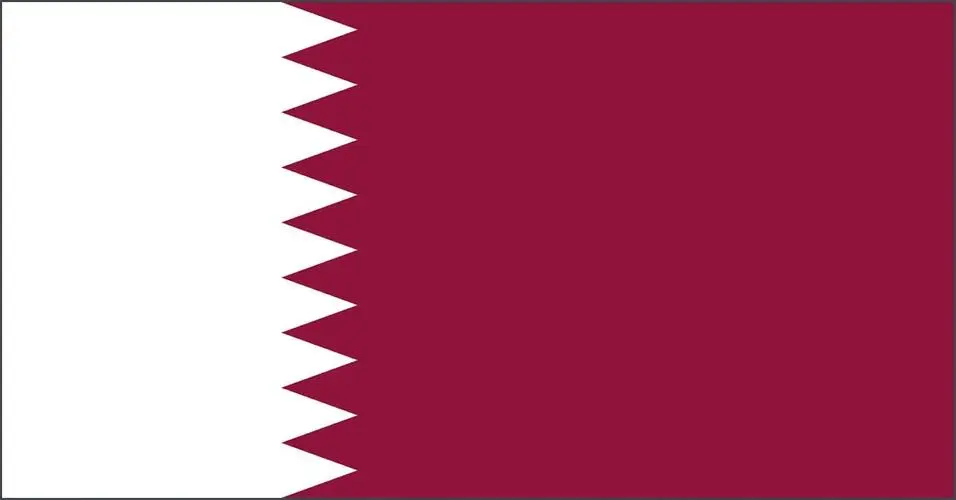Overview of Qatar

Overview of Qatar
Geographical location and area
The State of Qatar is located in southwestern Asia and is a peninsula country on the eastern side of the Arabian Peninsula. The capital Doha is located on the Qatar Peninsula on the southwest coast of the Persian Gulf. Qatar is 160 kilometers long from north to south and 55-58 kilometers wide from east to west, with a land area of 11521 square kilometers.
Population and ethnicity
The total population of Qatar is 3.09 million, of which about 313000 are Qatari citizens, accounting for one tenth of the total population, and the rest 90% are foreigners. The main ethnic group is Arabs, belonging to the Mediterranean type of the European race, and some people have characteristics of the Negro race.
Language and religion
Arabic is the official language, and English is also widely used locally. Islam is the state religion, with 99% of residents adhering to it, mainly Sunni.
historical background
Qatar was part of the Arab Empire in the 7th century AD. From 1517 to 1776, it was successively ruled by Portugal, the Netherlands, and England. In 1846, Sani bin Mohammed established the Emirate of Qatar. In 1872, it was incorporated into the Ottoman Empire's territory. In 1882, Britain invaded and declared the region as a "protected area" of Britain. In 1970, the first interim constitution promulgated established Qatar as an independent monarchy and sovereign state. On September 3, 1971, Qatar officially declared independence.
Political system
Qatar operates under a monarchy, with the Emir as the head of state and Tamim bin Hamad Al Thani as the current Emir. Mohammed bin Abdulrahman Al Thani is the Prime Minister.
Economic situation
The pillar industries of Qatar's economy are oil and gas, as well as the related petrochemical industry. The GDP for 2023 is 246.36 billion US dollars, with a per capita GDP of 84900 US dollars. Qatar is implementing an economic diversification strategy, with stable economic growth prospects and modern infrastructure.
Culture and Education
The main academic institution in Qatar is Qatar University. In terms of culture, Qatar hosted the 2022 FIFA World Cup and has several historical sites, such as the Zubara Archaeological Site.
The economic profile of Qatar mainly includes the following aspects:
Economic pillar: Qatar's main economic pillar is the oil and gas industry, particularly the production and export of liquefied natural gas (LNG). Qatar is the world's largest producer and exporter of liquefied natural gas, with abundant revenue from oil and gas exports.
Economic diversification: Qatar is implementing an economic diversification strategy aimed at reducing dependence on oil and gas and promoting sustainable development. The 2030 National Vision is the core of Qatar's economic diversification, with the goal of building Qatar into a sustainable, internationally competitive, and high standard of living country by 2030.
Fiscal Budget: The projected fiscal revenue for 2024 is 55.5 billion US dollars, a year-on-year decrease of 11.4%. Oil and gas revenue is expected to be $43.681 billion, a year-on-year decrease of 14.5%; Non oil revenue was $11.819 billion, a year-on-year increase of approximately 2.4%.
GDP data: Qatar's GDP in 2023 is 246.36 billion US dollars, with a per capita gross domestic product (GDP) of 84900 US dollars. Despite Qatar's economic growth rate of 1.2% in 2023, the GDP in the fourth quarter decreased by 0.04% year-on-year.
Industrial structure: Qatar is striving to promote economic diversification and develop non oil industries, including tourism, construction, manufacturing, and services. In addition, Qatar also focuses on infrastructure construction, with modern roads, subways, airports, ports, and communication facilities.
International status: Qatar is a member of international and regional organizations such as the United Nations, the Organization of Islamic Cooperation, the League of Arab States, and the Gulf Cooperation Council. The headquarters of the World Gas Exporting Countries Forum is also located in Qatar.
In summary, Qatar's economy is mainly based on oil and gas, but it is actively promoting economic diversification, focusing on sustainable development and the development of non oil industries.

